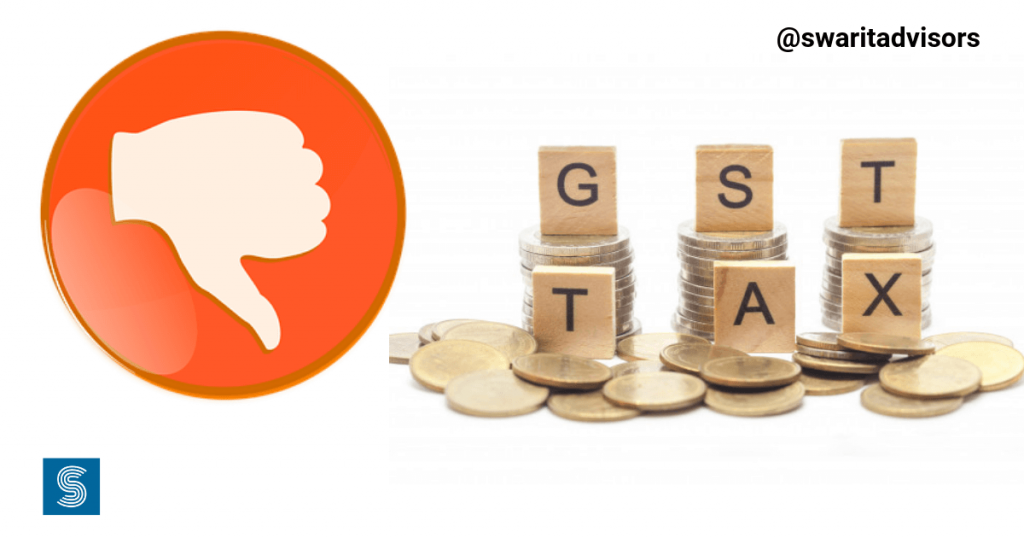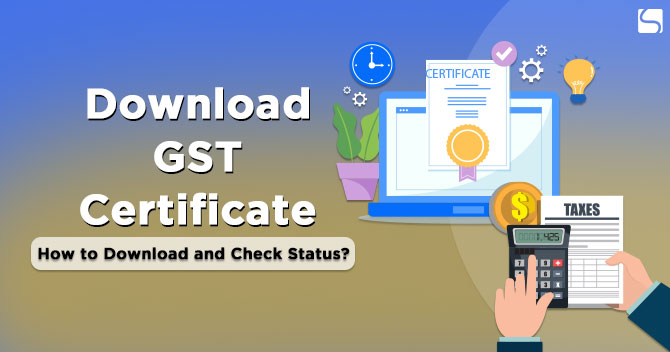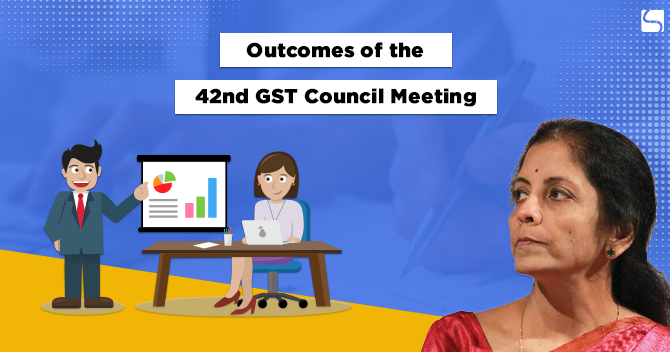Demerits and Disadvantages of GST

Neha Saxena | Updated: Feb 21, 2019 | Category: GST
The concept of GST has no doubt has many advantages, however apart from that there are also some disadvantages and demerits of the same. Let’s discuss some of the Demerits and Disadvantages of GST which must be considered deeply.
Table of Contents
Software in GST Registration
According to the analysis, it was found that to avail the facilities of GST, businesses has to update the accounting software which they are currently using or have to purchase the ERP software which carry the features of GST. This software acts as a means to keep the business on going. Both the above mentioned software functions are expensive and also not cost effective. Apart from that even if a business purchase the software, the business has to provide training to its employees for the effective use of the software which leads in additional cost.
GST compliant for Small and Medium Enterprises:
Businesses which are small and medium-sized may try to avoid the payment of GST as most of them are not yet registered for GST to access the Goods and Service tax regime. These small and medium-sized businesses will ultimately use the invoices with GST complaints for record-keeping digitally as well as to file GST returns according to the time frame. This suggests that the GST-compliant bills or invoices will be issued as compulsory details including HSN codes, supply place and GSTIN.
Is GST acts as a means for the rise in operating costs?
With the changes in the tax regimes in India, it can be rightly said that GST has been implemented considering the changing times and the ways of payment of taxes in India by businesses whether it may be small, medium or large in size. After the implementation of GST businesses, these days have to appoint professionally qualified employees who can be GST compliant. This leads to an increase in the operating cost of small as well as medium-sized businesses as these low-budget businesses have to avail the services of professional experts by incurring additional costs. Apart from that, the businesses are also required to provide training to the employees for compliance of GST which also incur additional costs and ultimately lead to an increase in the overhead costs.
GST came to force in a mid-financial year:
The GST (Goods and Service Tax) came into force in India on 1 July 2017 which stopped the applicability of other indirect taxes in India such as VAT, service tax, excise duty etc. After the implementation of GST, businesses in India were already following the previous old tax structure for three months which are April, May, and June. Due to this, the businesses took more time to get adjusted to the new regime of tax. Apart from that in the beginning and till now also there are much confusion regarding the compliances of GST in the minds of the business owners.
Is GST a complete online tax?
With the current advancement and development of digitalization in India, there is a rapid increase in the online payment of transactions. Accordingly, the businesses are also participating in digital India campaign by switching their books of accounts from pen and paper to the adoption of digital records. The businesses are today filling their returns and also making the payment online. However, this system of online payment and registration may be a benefit for a large business but there are many small businesses that may not be able to adopt this system of tax payment.
In India, most of the businesses owners who reside in small villages do not have that much of facility for access of internet even if there is a facility of internet they do not have that much of knowledge of payment and filling of GST returns online. The business owners from small villages generally don’t have processional competence to use digital software.
The small and medium Enterprises will have high tax burden:
Analysis of the current scenario in India with regard to the implementation of GST registration suggests that small businesses may go through difficulties under the GST regime. This difficulty is mostly applicable for small and medium-sized businesses which are engaged in manufacturing. As per the previous tax regime in India, a business having an annual turnover of more than Rs 1.5 cores is liable for the payment of excise duty. However, under the GST Regime, a business having an annual turnover of more than Rs 20 lakh is liable for the payment of GST.
However, the small and medium enterprises having an annual turnover of up to Rs 75 lakh can get the benefit of composition scheme under GST[1], according to which the business is liable to pay 1% tax on the amount of turnover in place of GST which ultimately lessens the tax compliances. However, the selection of a composition scheme or payment of high tax is a difficult and tough decision for most small and medium-sized enterprises.
GST does not define Petroleum Products:
The GST (Goods and Service Tax) came into force in India on 1 July 2017 but it does not define petroleum products. This directly suggests that the states of India will collect taxes on petroleum products. Apart from that, it can also be clearly seen that there will be no feature of input credit to petroleum products.
Inevitable Inflation:
According to the analysis, GST registration will majorly become the reason of inflation in many sectors. However, there are many measures which are being taken to ensure that this may not happen and if it does how to overcome the same. There are various measures which are in the process of initiation out of which is anti-profiteering at the retail level.
Multiple Registrations:
Under the GST regime, every business across India has to get itself registered in more than one state in which it has been operating continuously. This more than one registration scheme suggests that there are more burdens with regard to the compliance of GST.
Apart from the aforesaid demerits and disadvantages, GST also has the following few disadvantages;
- According to the statements of some the economists, the impact of GST will be negative in India, especially in the real estate sector. According to them, the GST will increase up to 8% ne house costs and this will ultimately reduce the demand of new houses by 12%.
- According to the opinions of some taxation experts the invention of the terms CGST (Central Goods and Service Tax), SGST (State Goods and Service Tax) are not new terms as they have been used as an replacement of previous indirect taxes such as VAT, CST, Central Excise/Service Tax. Thus, the implementation of GST cannot be considered as a reduction the layers of tax numbers.
- Previously, some of the retails products had 4% tax on them but now after the implementation of GST, it is quite high and expensive.
- The aviation industry is being affected under GST as the previous service tax rate on air fares was 6% which increases to 9% under GST regime. As per the analysis the current 9% GST on airfare will exceed 15% in the near future which will lead to double increase in the rate of tax.
- Under the previous tax regime the service tax was 15% which was replaced by 18% after the implementation of GST. After many businesses made the GST registration, many services became expensive which includes airline, telecom as banking industry.
- The GST registration provides the control of all types of business to the state as well as central government with different laws. This led to increase in the complexity in various small and large sized businesses across the country.
- After the implementation of GST registration compulsory for all businesses, there were few instances where it was noticed that the applications have high tax burden and the system of input tax credit are not being provided to several businesses due to mismatch of the data or information provided.
- The implementation of GST is called as a tax of disability by the opposition party as many things are related to the people with disability included in GST taxation system which were termed as tax free under the previous indirect tax regime. Before the implementation of GST Registration, typewriter, wheelchair, hearing aid were tax free but now the aforesaid items are subject to tax.
- The GST regimes also have an effect on the reward and discount program and schemes. Under GST registration, the products are being taxed on the pre discounted rates. On the other hand under the previous tax regime the products were taxed at post discounted rates.
- According to GST registration, the supplier is required to register in all states and under GST there no system of centralized GST registration.
Conclusion
With the analysis of the above facts it can be said that it is not always easy to accept and implement change. The Government of India is trying its level best to important measures to overcome the difficulties which are being arisen due to the implementation of GST. However, we must take lessons from other developed countries across the globe that have adopted and implemented GST before us and overcame all the difficulties and disadvantages of GST and now enjoying the benefits and advantages of GST.
GST registration is considered as the brand new regime in the field of indirect tax. The system has been implemented as a modification of the previous rules of indirect taxes in India. The GST registration can be termed as the coalition among the state government and central government for providing better taxation system in India. However, like every coin has two sides, GST registration also has its own advantages and disadvantages.
For more information, related to the GST registration process and to have complete details on disadvantages and demerits of GST you can contact the team of Swarit Advisor. Swarit Advisor has a team of experts who will help you to get your GST registration in a hassle free manner.














